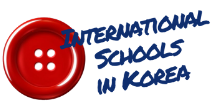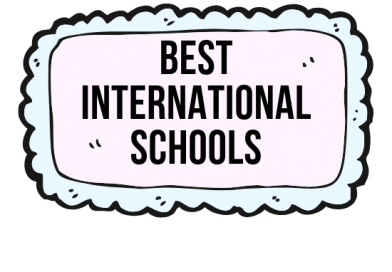An Insider’s Guide to Each International School Seoul Korea
Every International school in Seoul Application Process
Every international school in Seoul has its pros and cons. Do extensive research and then start the application process. If you qualify for enrollment, beginning the application process is the next step. International schools in Korea accept applications for the following school year beginning late fall/early winter. You will know as soon as April whether your child has been admitted or put on a waitlist for the following Fall Semester. Therefore, it is best to gather all the proper paperwork and submit applications as soon as you can. You can assume other international schools have more or less the same requirements, but it’s best to check each school’s website for specific information. Some schools ask for recent test scores of an accredited standardized test, such as MAP, ERB/ISEE, Stanford (SAT). Others will ask your child to take an onsite entrance exam, especially when no test score is available. Interviews are also common. Headmasters or Principals will interview the parents and students, not only to ensure their English speaking proficiency is up to par but also to check that the student is serious about their academic endeavors. As mentioned previously, Korea places high standards on academics; therefore, driven students are preferred to maintain the academic rigor of a school’s culture.
Each International School Seoul has a different curriculum: American or IB curriculum
The difference in American or IB curriculums are apparent during secondary school. American curriculums offer Advanced Placement courses (AP) and International Baccalaureate curriculums offer IB diploma programs. IB programs were designed to develop students to adapt to a globalized world. Most international schools adopt an IB curriculum because IB diplomas are accepted across different countries, whereas, the AP program is solely for the American university system. IB programs are comprehensive of a vast area of subjects and have a strong focus on the Theory of Knowledge. IB is essay-heavy and centers on enhancing critical thinking skills. AP classes are designed by College Board (the same organization responsible for the SAT and PSAT) to give driven high school students an opportunity to take college-level courses, take the AP exam, and receive college credit if they pass. The same concept applies for IB tests, but the difference is IB is an all-encompassing curriculum whereas AP classes can be taken individually. Conventional knowledge claims IB programs are more challenging and more rewarding in the long run, but this may really depend on each school’s level of rigor and even the individual teacher.
Christian network
Many international schools across the globe tend to be Christian-based. A few schools strongly uphold Christian values and make Bible studies and services mandatory. Others were merely founded by missionaries, but today they operate like normal public schools in the West. If the level of conservatism is important, you should contact the school and inquire about this for it can affect the type of information a child learns or does not learn. It is not uncommon for a school with a strong Christian practice to omit certain curriculum in the science discipline, for instance. As bias is prevalent throughout the world, it shouldn’t be surprising if a British school fast-forwards through the American Revolution or if an American school euphemizes Manifest Destiny. This does happen and may be worth considering, depending on your own family values.
Extracurricular activities and facilities
Although it costs an arm and a leg to send your child to an international school in Korea, the experience of a normal middle school and high school existence is something to be cherished. There are plenty of extracurricular activities available for international school students, unlike the Korean public school students who may spend over 12 hours a day cramming for their college entrance exam. School festivals, overnight trips, Senior trips, spirit week, and even Prom are usually offered at each international school.
International School Seoul: Clubs
Most campuses offer students the opportunity to join school clubs and propose clubs so they have the chance to practice leadership. Apart from the smaller clubs, such as Robotics Club, Art Club, Drama, etc, annual sessions are held for internationally recognized clubs such as Model UN; students can get involved with the National Honor Society; or run for Student Council positions; and uphold school integrity through the Honor Council.
Athletics and Facilities
Although the list of international schools in Korea is short compared to a district in an American city, athletics are offered and friendly games and competitions are regularly held between rival schools in Korea and Asia at the secondary school level. Many international schools take part in the Korean-American Interscholastic Activities Conference (KAIAC), APAC Asia, and FOBISIA. School facilities depend on the campus, but indoor gyms, basketball courts, tennis courts, and even swimming pools can be found on many international school campuses. Cheer is another favorite activity among many international school students in Korea. Visit the website of schools you are interested in and inquire about the athletic department for more information.
Academies
As mentioned before, affluent Korean locals are attracted to international schools. They come for the English-only curriculum and the chance to send their children to top Ivy League Universities abroad. A large portion of ethnically Koreans, whether local or Korean-foreign, make up the student body. Because of the competitive mindset of the Korean culture — on top of the extracurricular activities — students often go to academies or hagwons in the evenings. If not hagwons, they get private tutors to visit their homes. They may be preparing for upcoming PSAT, SAT, ACT, or AP exams, or they may be getting extra help with English, math, or science. The point is, Koreans can be obsessed with education. And although international schools do not use a relative grading system, the Korean parents have been raised in this relative grading society so the pressure to be top of the class can be immense. This pressure is obviously passed onto the children, and this may create the aforementioned culture at their school. A reasonable amount of rigor is alway welcome. No one wants to pay a quarter of a 100K dollars for an easy A. But seeing your child fall victim to academic pressure is a possibility. Find blogs, reviews, testimonials, or contact students and parents of each school to simply ask about their level of satisfaction and experience at their schools.
List of International Schools in Korea
For a complete list of international schools in Korea Preschools and kindergartens International Baccalaureate (IB) schools in Korea American curriculum schools in Korea
Alternative English Program International Schools
There is such a high-demand for international education in Korea that some business-savvy individuals have found a way to run internationally accredited schools in Korea, meaning graduates are internationally recognized as high school graduates. However, the Korean Ministry of Education does not recognize them as high school graduates. Simply, these Alternative English Program International Schools are registered in Korea as academies and cannot receive status as an actual school due to discrepancies in Korean education standards. But they meet international school standards and maintain accreditation with credible organizations, sending students onto prestigious universities abroad. Ethnically Korean students make up the vast majority of the student body and some even hold foreign passports. The advantage is smaller class sizes, more one on one attention from teachers, and about 10 million won cheaper tuition with similar curriculums to authentic international schools, but they do lack in facilities and some extracurricular activities.





